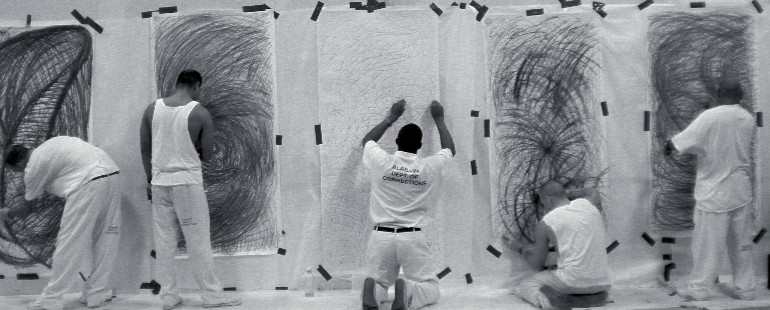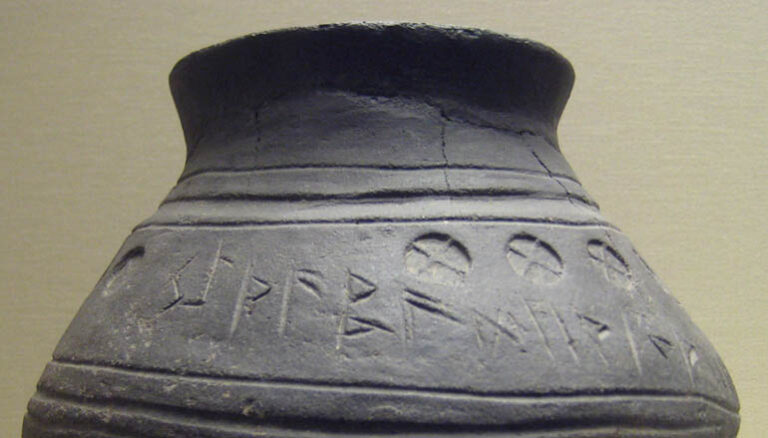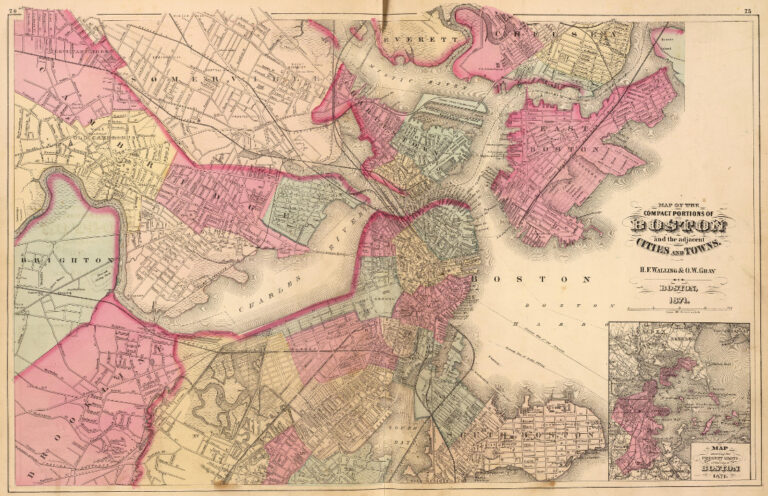Poetry, Art, and Education in Alabama’s Prisons

This is the third post in a Ploughshares series where Charlotte Donlon interviews people who promote and support writing and creativity. The other posts in this series can be found here.
Poet and educator Kyes Stevens believes we should all make space for human beings to be the beautiful, rich, complicated, messy folks that we are. Art and poetry help provide this space for all people, and the Alabama Prison Arts + Education Project helps provide this space for prisoners. I was able to interview Stevens via Skype a few weeks ago, in order to learn more about APAEP and her work.
Stevens established APAEP in 2002. The organization was first funded by the National Endowment for the Arts, in 2003, and currently receives support from Auburn University as well as from other grants and individual donations. After initially providing writing and visual art instruction to incarcerated populations, APAEP now offers access to educational experiences in the arts, humanities, hard sciences, and human sciences. Stevens says providing these classes to Alabama prisoners gives them opportunities to improve their lives and that the impact of their increased knowledge is felt in multiple ways. Some of her students who are parents send their art to their children. Others are sometimes able to assist with their kids’ homework, because they have learned from APAEP classes what their children are learning in their own schools. In addition, studies have shown that the more education someone receives while incarcerated, the less likely they are to return to prison once released.
When Stevens first started teaching in prisons, she was struck by how happy her students were in her classes. Prisons aren’t places that are conducive to happiness. Seeing her students experiencing joy and a sense of community made a big impact on her. She also noticed that, while her students love poetry for the same reasons she loves poetry, they engage with the genre in ways that are different from what Stevens has experienced in academia. These prisoners’ poems might not be valued by some poets with MFA degrees, but Stevens sees them as works of art created out of the students’ own realities. She values the sincerity of her students and their sense of urgency to read poetry and write their own poems.
What has most impacted her, over the whole history of the program, is realizing how awful human beings can be to each other. Stevens says people who have made mistakes and poor choices are being destroyed by incarceration, and she believes this is largely the fault of a network of systems that doesn’t work. These systems can create pathways to criminal behavior and a web of suffering that extends to the families and victims of those who are incarcerated. Stevens says that this network springs from our tendency to be fearful of anyone who is not exactly like us. This fear results in racism and prejudices that diminish some human beings. Those who are dismissed and treated as “other” will mostly likely crack, and those cracks can manifest in a variety of ways, sometimes resulting in imprisonment. Stevens believes dismantling the systems of racism and discrimination in our country would keep many people from ending up in prison. Changing the nature of this country, though, is difficult.
Since Stevens can’t fix society, she chooses to make a difference through APAEP. She focuses intentionally on highlighting poetry that others might dismiss as well as the parallels within certain literary circles that mimic our society at large. “There are some really interesting valuations and hierarchical systems about what constitutes a good poem and who gets to decide which poems are good,” she says. “In some ways, maybe that is mirroring a system of exclusion that is part of the problem in our country.” Stevens recognizes this might not be a popular statement, but she thinks there are some connections here and that poets and writers and artists should explore where those connections might exist.
APAEP hopes to diminish the effects of exclusionary systems by providing opportunities within prisons for students to learn, create, explore, and take risks. Students are able to make things they are proud of. Stevens says, “when you’re able to find value in your voice and in your own vision, you are able to build up a little shield and become more secure in yourself and how you think and how you see and how you write your poems. You’re more able to see yourself as a valuable individual instead of someone who should be dismissed.”
APAEP currently has 10 classes in 9 prisons within the state of Alabama. Stevens finds passionate, inspired educators who value learning to teach APAEP classes. All teachers are paid, because Stevens believes educators should be compensated for their time and expertise. Since the program launched, more than 170 artists, writers, and teachers have taught in the program. Stevens says most of these teachers count the experience among the most rewarding things they have done. She attributes that success to the enthusiasm of the students. They see education as their single opportunity to recreate their lives and do something different when they get out of prison. They have a hunger for knowledge that doesn’t always exist in typical classrooms. Seeing their students’ commitment to learning and to creating art also motivates the teaching poets, writers, and artists in their own work.
Although she says her students inspire her, Stevens has not written much poetry in the last year. Her work developing new APAEP programming takes up so much of her time that she’s not able to create right now. She misses writing poetry and knows that she needs to do it in order to process all that she experiences through her work with the organization. “It’s the way to move through some of what I see inside of prisons that is challenging,” she says. “When I teach poetry classes, I tell my students that poetry is really about learning how to see. So if you are waking up in the morning and engaging in the world as a poet, you are seeing. Just because you aren’t writing every single day doesn’t mean you aren’t working as a poet.”


